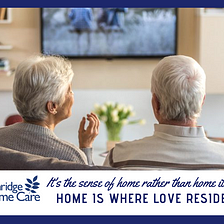Teams in dementia care homes :
Currently, out of the homes in the west departure, they have 48 champions to 2520 beds, so their ratio is one of 52. so it’s quite a long way short of 120 out of the 52 care homes. Thirty-one homes have dementia champions; you have to click here that a chunk of homes refuses to engage, and there’s a little chunk of homes. That are BupaBupa homes, so they have their champions, so, you know, you’re probably the case anyway; the aim has been to try and maintain contact and offer support. However, they can, so they’ve used team meetings and support rather than turning up at home, although, to be fair, they’re home. If you mean their team is probably the only one going into the care homes. So actually, they haven’t stopped us from going in because everyone else has stopped going in, and they’re the only ones visiting; they’ve used teams now for training in tier one for new champions.

For new staff and that’s been successful, and they’ve also developed the advanced dementia course on teams which you initially rolled out about a year ago for relatives in one of their care homes. Because they were the relatives were asking for it um, and it was a five-week course very well taken up um and then they wanted to roll it out to another home in Stratford. So they wanted it online, so you did it; click here as a link, you know, so the slides and comes rolling out over the slides they’ve taken on board, and they’ve used it a couple of times with other the newbie college and things.
Advanced dementia course :
The college people have taken it on board, and the advanced dementia course looks at the brain biology communication sensory in the environment behaviors that challenge and end of life. So it’s five slots each click here if you teach them about an hour long and look very much at advanced dementia rather than early stages. They also developed the delirium team’s presentation, so getting that out to all their care homes during covid is very important. So care planning support has been going on virtually and face-to-face for the last two years; we’ve been doing clinical review meetings with homes.
They’ve sat in sometimes with the GP, GP, sometimes with one of the runs from the team, sometimes the speech and language therapist, depending on what the home needs, and doing sort of clinical review meetings once a month. So they can identify people who are at risk and try and help them manage changes in health. Also looking at not for resuscitation forms respect forms, you know, advanced planning and things that, and they’ve also done some teams online verification of expected death training and signed off competencies and things for the home seniors to be able to verify death. So it’s been a busy year; next, that’s it, you’ve come to an end, god, you’ve got to keep going then that is fantastic, and you think it is highlighted the acknowledging that acknowledgment of people with especially dementia skills does have its rewards and the peer support.

